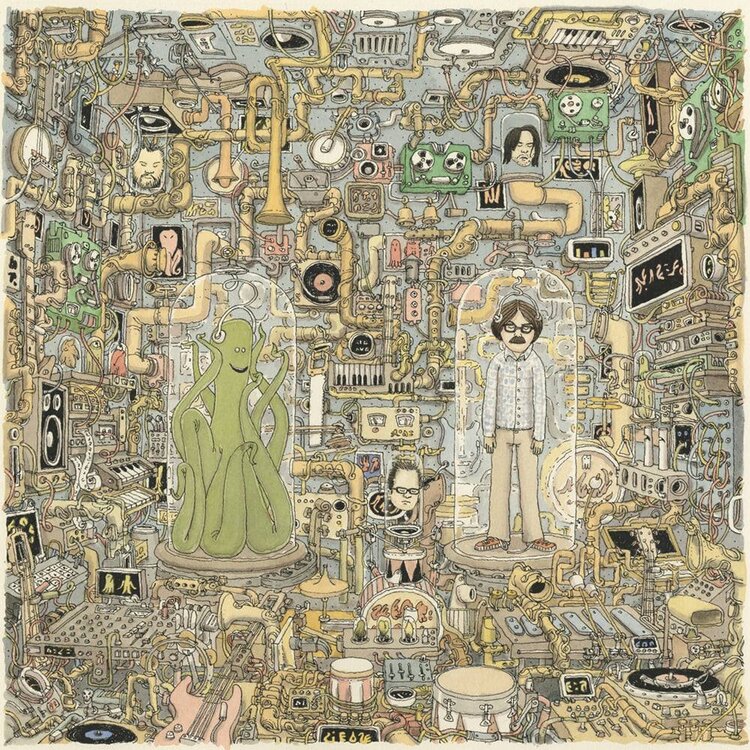
Weezer - OK Human
As a long-time Weezer fan and someone who grew up obsessing over the Blue Album and Pinkerton, I was very surprised with my first listen to their latest album, OK Human. You won’t hear any of the computers or even electric guitars associated with the sound they have crafted over the years. Instead you are met with stripped back instrumentals and a 38-piece orchestra — a bold move, yet one done surprisingly well. OK Human offers a whimsical take on the anxieties created from prolonged pandemic lifestyles, and while it may not have resemblance to a Weezer of the past, their experimentation leads to a well put-together album that once again breaks the stereotype of what it means for Weezer to be a modern-day rock band.
Those familiar with Weezer and their music know all too well how strange this group can be. One moment they will shake the world with one of the greatest rock albums of all time in The Blue Album, and the next they are completely changing their award-winning sound in an attempt to stay ‘mainstream.’ Recent examples of this were the radio-friendly and pop-driven releases of the Black Album and Pacific Daydream. While each hosted their fair share of solid tracks, they ultimately underperformed on the charts and lacked the unique style of nerdy rock/alt-rock that originally defined Weezer’s sound.
The arrival of OK Human, however, is an especially surprising change considering what Weezer had in store just months prior — a yearlong tour for Van Weezer, a tribute album to the band’s rock and roll heros, Van Halen, performing alongside the likes of Green Day and Fall Out Boy. Due to the coronavirus, both the tour and the release date of the album were pushed back an entire year. So what was Weezer’s response to delaying such a high-energy rock and roll album? The release of the stripped back and experimental OK Human, of course.
Besides being a direct consequence of the virus, the album also owes all of it’s lyrical content to pandemic living. Throughout the entirety of OK Human, the band’s lead singer and songwriter, Rivers Cuomo, communicates his pandemic-fueled anxieties through his lyrics in an almost theatrical way. In an interview with Apple Music, Cuomo says that he’s “always been such a fan of classical music and opera,” of which he drew heavy inspiration from for the album. Whether it be the smooth song-to-song transitions, or the stripped back instrumentals and orchestral arrangements, the album actually sounds surprisingly good. “Screens,” “Grapes Of Wrath,” and “La Brea Tar Pits” are all great examples of this, and show that the band is able to successfully delve into other styles of music without having to rely on power chords and guitar solos that originally brought them popularity. The album also features a really well done piano ballad in “Playing My Piano” that puts Cuomo’s vocal talent on full display.
“All My Favorite Songs” is hands down one of the strongest pieces off of the album, and a great choice as the opening track. Cuomo sings about how confusing life can be, and the very relatable line, “all my favorite people make me mad,” points directly towards the frustrations everyone is feeling after being stuck at home with the same people everyday during the pandemic (even if it’s the ones we love). Reminiscent of the Verve’s “Bitter Sweet Symphony,” it does a fantastic job of setting the tone for the rest of the album, introducing the piano- and string-based sound that is continued throughout.
While the album may not be as memorable as some of their other work, Weezer manages to successfully incorporate a very unique musical style into their sound, all the while communicating many of the feelings we are experiencing ourselves during the pandemic. As the band’s 14th full length studio album, both Weezer fans of old and even new listeners will definitely find something to enjoy with OK Human.
alternative
Weezer
]